The International Journal of Women and Child Studies holds a virtual symposium entitled Prospects for Childhood Development in the Arab World at the Faculty of Girls
Under the auspices of Prof. Dr. Mahmoud El-Meteini, President of Ain Shams University, Prof. Dr. Ayman Saleh, Vice President for Graduate Studies and Research, Prof. Dr. Amira Youssef, Dean of the Faculty of Girls for Arts, Sciences and Education, and Prof. Dr. Hanan Al-Shaer, Vice Dean of the Faculty of Girls for Graduate Studies and Research, the International Journal of Women and Child Studies held a virtual symposium entitled "Prospects for Childhood Development in the Arab World".
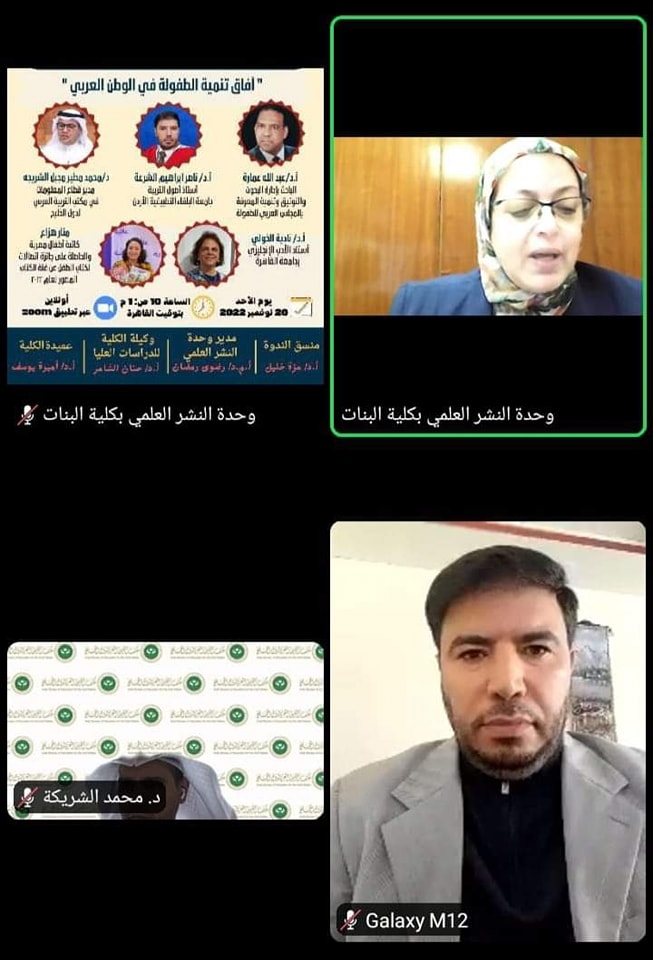 |
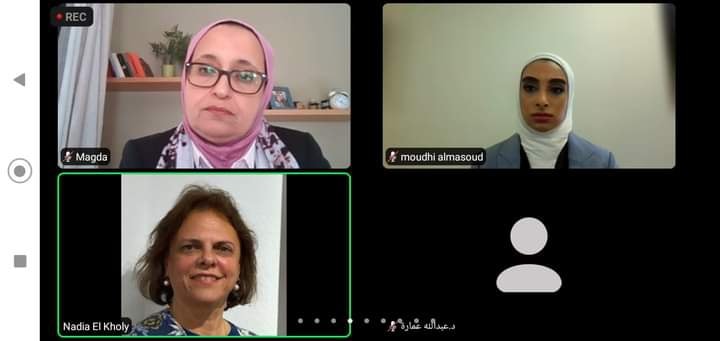 |
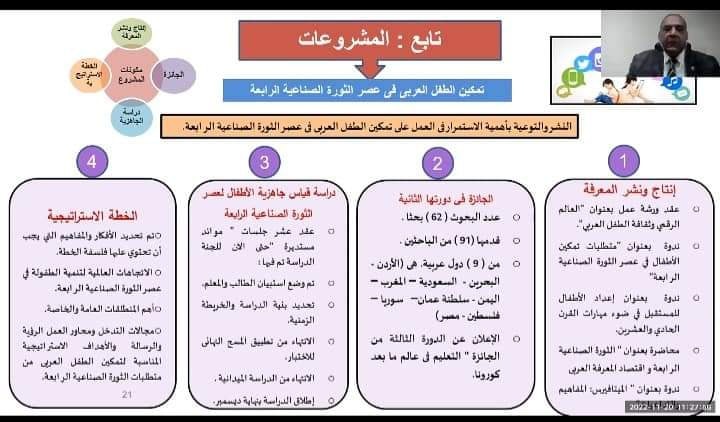 |
||
A number of Egyptian and Arab academics and researchers participated in the meeting, which was moderated by Prof. Dr. Azza Khalil, manager of editing of the International Journal of Women and Child Studies Prof. Dr. Nadia El-Khouly, Professor of English Literature at the Faculty of Arts, Cairo University, presented a paper entitled "Children's Culture between Reality and Hope", in which she explained the importance of children's books and stories being characterized by appropriate content and language, and that whoever writes for children must have knowledge of the child's psychology and mental development. Relying on books translated from the West has led to uniting children with personalities that do not belong to Arab culture.
In the end, Dr. Nadia reviewed the most important achievements in the field of children's culture and literature and reviewed a number of distinguished and award-winning Arabic books.
As for the children's writer Manar Hazaa, she participated from the United States by talking about the side effects of bilingualism on the acquisition of literacy, and that writing for children should be in a language close to the language spoken by the child. She reviewed her personal experience in writing for the child, while writing the text in both classical and colloquial languages, and explained the importance of reading the story to the child, not just telling it without directing his attention to the written text. She also appealed to the writers to break out of the stereotypes in presenting the characters of the stories.
This was followed by a review by Dr. Muhammad Mutair, the partner, of the efforts of the Arab Bureau of Education for the Gulf States to serve childhood. In his speech, he reviewed examples of initiatives undertaken by the Bureau in partnership with other bodies to spread culture and support new writers by organizing competitions, supporting the publication of their books, and holding cultural and educational seminars in cooperation with various parties related to the field. Educational and cultural.
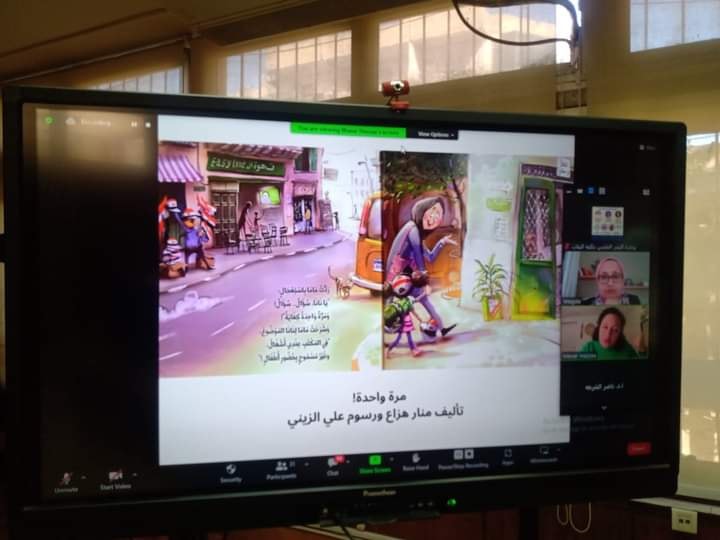 |
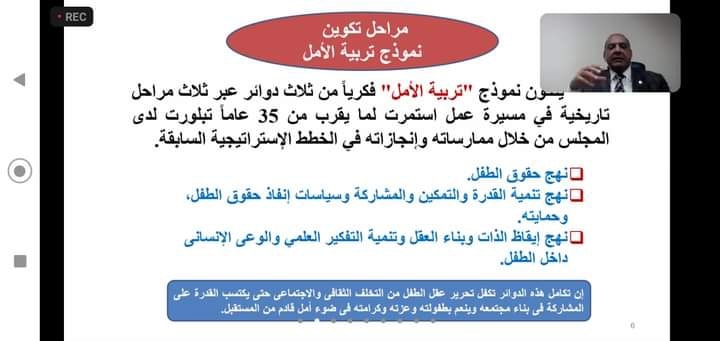 |
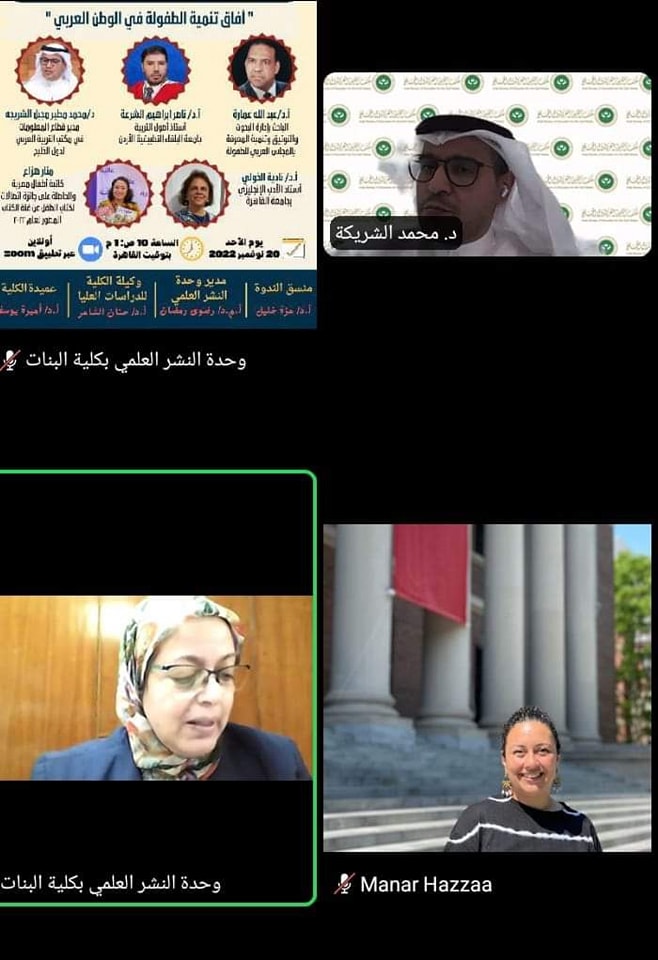 |
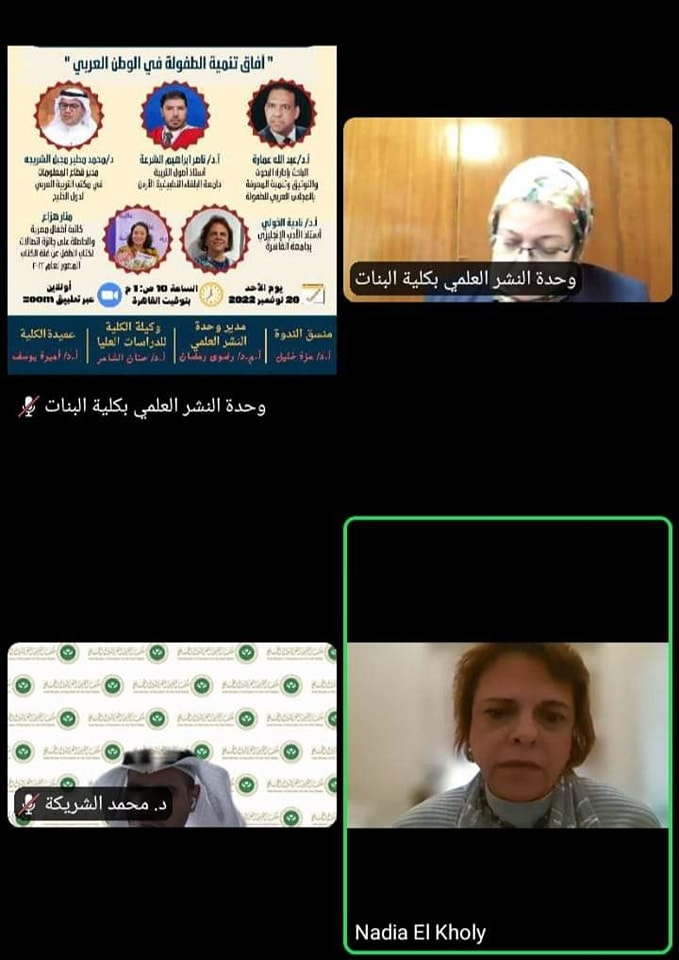 |
While Dr. Abdullah Emara, a model of child upbringing and raising hope, reviewed the efforts of the Arab Council for Childhood in spreading educational knowledge through its various publications, in addition to the various studies that monitor the reality of the upbringing of the Arab child and the prevailing pattern in it.
He also reviewed the various projects aimed at empowering the Arab child in the era of the Fourth Industrial Revolution. Also, Prof. Dr. Nasser Al-Shara'a reviewed the most important effort that the Hashemite Kingdom of Jordan has accomplished in the field of childhood care in the health, cultural and educational fields. Researcher Moudi Al-Masoud also reviewed the efforts of the State of Kuwait in providing health care for both mother and child, as well as providing support in the cultural and educational fields in early childhood service.
In the end, a number of recommendations were made that emerged from the topics raised in the symposium, namely:
1. Updating laws and legislation that guarantee the rights of the child, and state support for families who are unable, with the aim of enabling the child to obtain his rights.
2. Upgrading the educational culture of families in Arab societies to limit the methods of upbringing that harm the growth and learning of children.
3. Promoting children's literature and culture that is based on informed writing and based on scientific knowledge of the child's cognitive, social, linguistic and emotional development.
4. Creating an Arabic fictional character that embodies the features of Arab personality and values instead of leaving children to unite with foreign characters in translated foreign stories.
5. Getting out of the stereotypical view of society's personalities in children's literature.
6. Interest in theatrical literature for the kindergarten stage.
7. Integration of new technology and production of child-oriented literature through it.
8. Interest in environmental issues in children's literature.
9. Benefiting from the model of the Arab Council for Childhood in the field of upbringing and generalizing the Arab child.
The coordinator of the workshop, Prof. Dr. Azza Khalil, the editor-in-chief of the International Journal of Women and Child Studies, and a professor in the Department of Child Education at the Faculty, supervised by Prof. Dr. Radwa Ramadan, Director of the Academic Publishing Unit at the Faculty.
.svg)




